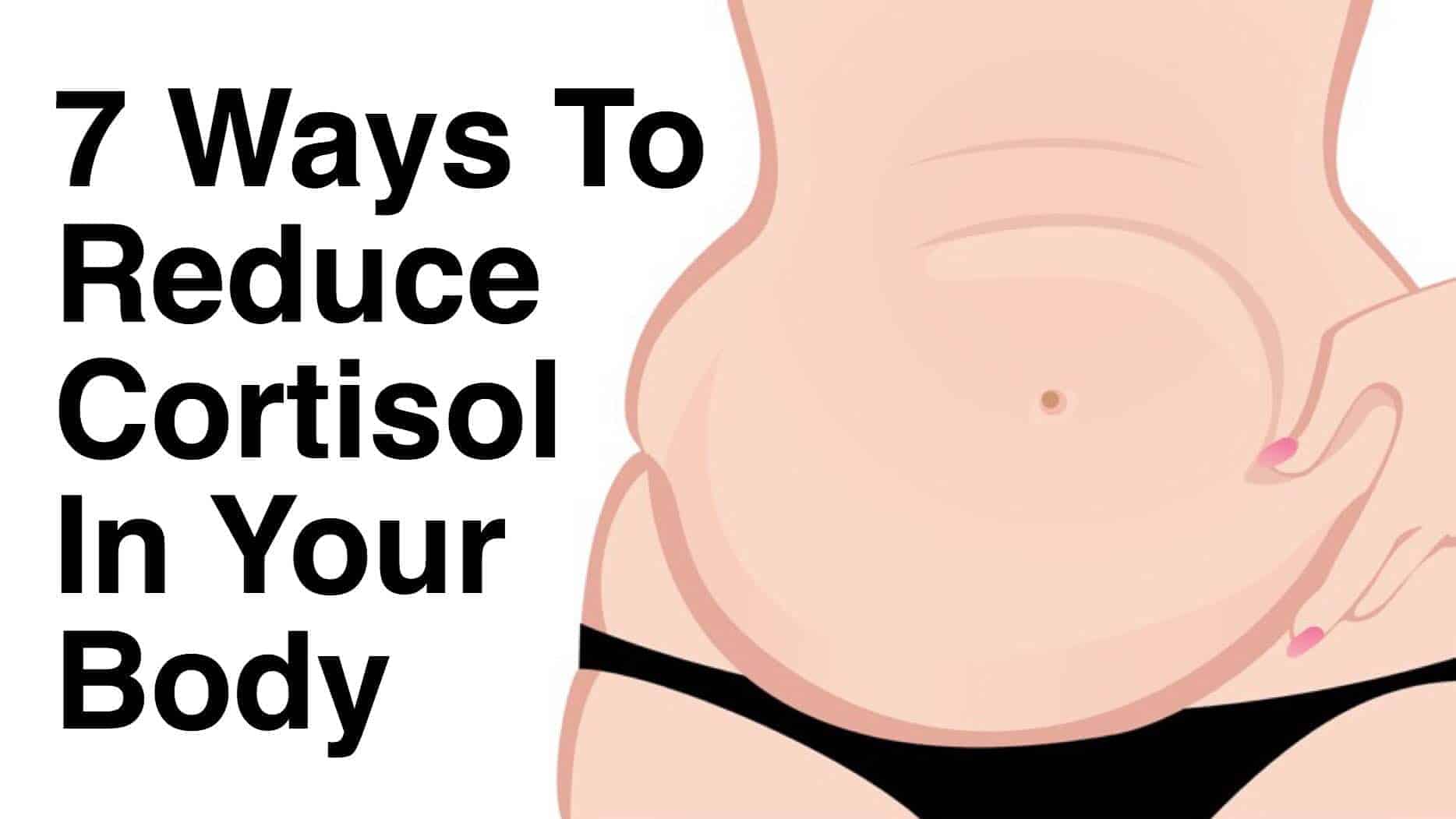Our bodies produce cortisol when stressed – a byproduct of innate, evolutionary programming that helps initiate action and elude danger. Cortisol, in addition to epinephrine, is an important stress hormone that serves a variety of functions. In fact, cortisol helps keep us alive by maintaining our body’s homeostasis (balance). It helps regulate blood pressure levels, metabolic activity, immune system responses, blood pressure, inflammation, heart functions, blood vessel function, and central nervous system activity.
However, elevated stress levels can cause our body to overproduce this hormone. When this happens, the body is prone to a number of undesirable side effects including the following: high blood pressure, weight gain, elevated cholesterol, heart disease, anxiety and depression, immune system damage, and cognitive problems such as difficulty learning and impaired memory.
That said, it is important that we keep our cortisol levels stable.
What Does Cortisol Regulate in Your Body?
This stress hormone plays a key role in how you respond to stress. When you’re in danger, your body releases both adrenaline and cortisol. It’s an important hormone for your health and survival. Cortisol helps your body
- Regulate blood pressure
- Regulate the metabolism of fats, carbohydrates, and proteins
- Reduce your inflammation
- Maintain sleep cycle
Problems occur when you have too much cortisol being released into your body. Here are some signs you have high cortisol.
10 Key Signs Your Cortisol Level Is Too High
“Stress is the trash of modern life–we all generate it, but if you don’t dispose of it properly, it will pile up and overtake your life.” —Danzae Pace
1 – Cortisol imbalance might cause fatigue
If you experience constant fatigue, it could mean your body is releasing too much of the hormone cortisol. The hormone gets released by your adrenal glands to regulate your blood pressure. When you’re under stress, your adrenal glands release more cortisol. You’ll feel exhausted if these adrenal glands release too much cortisol over time.
2 – Obesity
Too high levels may increase your appetite. This makes you feel hungry all the time and overeat. Most of the weight you gain will be in your stomach area, which can lead to abdominal obesity.
3 – Sleep problems
If your body produces too much cortisol, it may cause you to have sleep problems like sleeplessness or sleep apnea. Not sleeping well can lead to weight gain and feeling more stress.
4 – Thinning skin
Another sign is thin skin. This is because higher levels of cortisol break down your skin proteins. It also weakens the small blood vessels under your skin, making your skin look papery thin, and translucent. You’ll also bruise easily and wounds won’t heal as quickly.
5 – High blood pressure
High stress makes your adrenal gland to release cortisol hormones. That’s why it’s called a “stress hormone.” The extra cortisol in your bloodstream elevates your heart rate and blood pressure. Too high of stress causes too much cortisol and high blood pressure to be released into your bloodstream.
6 – Weakness
Cushing’s disease occurs when extra cortisol is released into your bloodstream, resulting in high blood sugar, muscle weakness, and weight gain.
7 – High cortisol can cause diabetes
Elevated cortisol over time will produce glucose, which may lead to high blood sugar and type 2 diabetes. If you’re feeling stressed, mention it to your healthcare provider. They can run blood tests to evaluate your blood sugar levels.
8 – Menstrual irregularity
It could be due to stress and too much cortisol if you’re struggling with menstrual problems such as missing periods or irregularities with your period. The hypothalamus is part of your brain that regulates your menstrual periods. Stress, exercise, and sleep affect the hypothalamus. Elevated cortisol levels affect your hypothalamus, leading to irregular or missing menstrual periods.
9 – Trouble focusing
“Brain fog” is the term used to describe an inability to focus. This is a symptom of Cushing’s syndrome, a condition because of elevated cortisol levels. Brain fog makes you feel confused, forgetful, and lack mental clarity.
10 – Getting sick a lot
One common sign of elevated cortisol is a tendency to get sick often. Hormonal imbalances can interfere with your immune system’s ability to fight infections and inflammation.
Here Are 7 Ways to Reduce Cortisol in the Body:
1 – Get some exercise to decrease cortisol
Is there anything that physical activity won’t help? Seriously… there seems to be a new study every other day that links exercise to health benefits. Anyways, getting exercise can help reduce cortisol by “releasing” pent-up stress or other counterproductive emotions.
One theory is that fear increases cortisol and that by exercising, we build upon our grit, resilience, and self-confidence…effectively counteracting potential fear and reducing cortisol levels. Theories aside, exercise is a great way to reduce cortisol levels.
2 – Practice mindfulness or meditation
Any kind of meditation or mindfulness practice can lower your levels. Even a few deep breaths in the middle of a hectic workday can reduce our anxiety and stress, which also lowers the stress hormone.
A good, simple practice: when we start to feel stressed out in any way, take 10-15 deep breaths while feeling the body relax. Paying single-minded attention to our body and mind is called mindfulness – a practice that is incredibly beneficial to reducing a multitude of negative effects, both mental and physical. Of course, this reduces levels of cortisol.
3 – Connect with others
Researchers at Johns Hopkins University discovered a link between social isolation and increased cortisol levels in mice. It is believed that those with a predisposition towards mental illness who are socially isolated in adolescence are more at-risk for developing abnormal behavior later in life.
This study confirms what many scientists already knew: human bonding is essential to physical and mental health at any age. Familial ties, friendships, and intimate relationships are all beneficial to stress and thus reduce your levels.
4 – Laugh a little
“Laughter is the best medicine.” How many times have we heard this throughout our lives? Dr. William Fry, a behavioral psychiatrist whose been studying the effects of laughter for over 30 years, states that laughter is inextricably linked to several physical and mental benefits.
One such benefit of laughter is its positive effect on stress hormone levels. Studies show that having a sense of humor, laughing and levity are all beneficial in reducing the levels of cortisol and other stress hormones.
5 – Listen to some tunes
Pretty much all of us have experienced music’s mood-enhancing properties. There’s something about putting on a favorite tune and feeling much better for doing so. Turns out that there is a chemical reason for this: music increases the number of endorphins (“feel good” chemicals) and reduces the number of stress hormones in the brain.
6 – Eat healthy foods to rebalance cortisol
Certain foods such as eggs, fish, lean meat, flaxseed, citrus fruits, berries, and leafy greens can help rebalance your hormone levels. Another good idea for lowering stress and reducing cortisol is to incorporate five small meals a day. This helps to stave off hunger and reduce the common food cravings resulting from high cortisol levels.
Finally, implementing a high-fiber and high-protein diet will aid in reducing stress hormones. Reducing complex carbohydrates (i.e. sugar and starches) is another idea that helps in keeping cortisol levels at bay.
7 – Get enough sleep
This one is relatively simple to explain. Not getting adequate sleep (seven to nine hours a night) produces a systematically negative response from the body. We’re prone to cognitive impairment and are more reactive to the environment around us – both things are very bad for stress.
It is important to establish a sleep routine. Sleep experts recommend going to bed and waking up at the same time every day, including on weekends. It is also important to reserve the bedroom for sleep-related activities only. No tablets, cell phones, or laptops in other words.





















